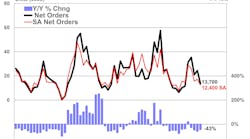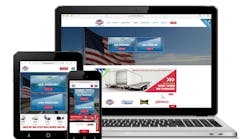YES, these are maddening times in the business world. But Stan Slap says that's unimportant: What's really important is what companies do about it.
Slap, the president of an international consulting group called “slap” who has been credited with revolutionizing the performance of some of the world's largest and brightest companies, said companies have to stop making excuses if they are to remain standing while everything around them seems to be falling down.
“Companies are quick to blame the forces of nature and world events,” he said. “Acts of God. The rise of technology. The fall of technology. Iraq. Iran. The things that might seem the most out of control are really the most in control.”
Three of the most common excuses:
The economy is in ruins!
“Yes, but that's not really the issue,” Slap said. “If it was only the trailer industry that was experiencing this economic downturn, then you'd have real reason to worry. The problem is so deep and widespread that it demands urgent intervention. It will not last. The world economy must do whatever it has to do to right itself. Things will return to normal. Consumers once again will spend money they don't have for things they don't need. Go back to your company and make a deal with management: ‘You can blame the economy for things being bad. However, when things get better, you have to give the economy all the credit.’ In the worst economy, there are some companies that are continuing to post record revenue. Good management will defeat a bad economy all the time.”
The competition is killing us!
“What are the components of business success? A high quality and dependable product? That kind of extraordinary customer service? Coordinated advertising? Emotionally committed managers inspiring emotionally committed employees? Which of these things is the competition controlling? Nothing. There is nothing competitors can do to you that can match the debilitating blows you can give yourself on a regular basis. Do what you do best and forget the rest.”
Our customers have changed!
“Well, your customers may have less discretionary income than they used to and less patience with a badly run business than they used to. But one thing will never change: The most reliable indicator of customer loyalty and commitment is if your company becomes branded.”
A brand happens
Slap said every company he's ever met wants to become a brand. They don't know what a brand is necessarily, or how to become a brand, or why, but they think it's something they're supposed to aim for.
“Branding is the transfer of sustainability from your company to your customers,” he said. “A brand happens. Your company gets branded if your customers are convinced that what you provide them is of uniquely high value, and they're so convinced that they believe anything you sell them will have that same special value embedded in its qualities. You don't have to work as hard to protect market share. Your customers will do that for you.
“People will say that you want to be branded because you get improved revenue and won't have to spend as much in advertising. All those things are true, but there's something even bigger. There's a reason why you should want your company to be branded. When you become branded, you transfer the sustainability of your company to your customers. Your customers take over the concerns about you staying in business. They will advertise and sell for you, and protect your company if you stumble or get attacked. There is nothing more important.”
Slap said people will tell you a brand is all about creating trust in customers. Yes, trust is easy. But a brand is about creating the highest level of trust possible among human beings.
A brand, he said, is about creating faith, a feeling of, “I believe, but I don't know why and can't explain it.” A brand is about creating faith in two groups that he said absolutely can't be fooled: your employee culture and your customer culture.
He said he would bust the most dangerous myth of all about branding: Branding isn't a verb.
“It's a tribute,” he said.
Other people have to brand you.
“It has to be given to you, and that can be done only by customers if you provide them with something of uniquely high and consistently high value. What is it you can provide them? Your company, like every company in the world, sells two things: a product; and a process, an experience somebody goes through to buy and use that product.
“Every product is a souvenir of the experience of purchasing. If you have a great product and you get an ‘A’ on the product, but you get an ‘F’ on the process somebody has to go through to buy and use the product, you'd still be a ‘C’ player. You're thinking, ‘Nobody's going to give me an ‘F’ on customer experience.’ But unless it's considered a pursuit — relentless, urgent, focused — nobody's going to give you an ‘A’ either.
“You have to have the same attention to detail and the same commitment of resources that you give to the product side. The least successful companies in the world don't understand this. They think all they have to do is get the latest-featured and packaged product on the street a minute before their competitors, market and sell the snot out of it, and the process side of the business will mysteriously take care of itself.
“In the world of high-priced strategic consulting, we call that … wrong. The customer experience is a driver to your business. It's not an afterthought. And yet you can see this same strategy at work in companies in virtually every industry. Certainly your industry. Many, maybe most, are all product and no process. They're always insecure and always vulnerable as a result.”
Process, nor product
He said there is nothing you sell that your customer can't choose to buy someplace else, or possibly do without — except an intimate, values-based relationship between a company and customer. And that relationship can't be easily deconstructed by the competition. That relationship is created, nurtured, and maintained on the process side, not the product side.
What is a brandable customer experience?
It's spectacular.
“I'm talking blowing your customers right out of their socks,” he said.
It's signature.
“There have to be aspects of your customer experience that I can only get as your customer,” he said. “You pioneered it and I can't find it anywhere else. Even if somebody knocks you off on those, I know where they came from originally. I know the purity of intent.”
It's sustainable.
“It has to be manageable and affordable inside in order to be consistent outside,” he said.
He said there are “two little, annoying problems” that get in the way of this pursuit: your employees and your customers.
“For employees, the key word is willingness,” he said. “The average employee won't do this unless he believes it's the right thing to do, not just financially but emotionally. A strategy has to be implemented well, not planned well. And that starts with being able to secure the ferocious commitment of your employee culture. Your customers are generally employees somewhere, too. And they are part of the overall employee culture, and they will decide to support or reject your company based in part on how they perceive you treat people just like them.
“If the employee culture wants something to happen, it's going to happen. If the culture doesn't want something to happen, it's not going to happen. I've found very few who know what the culture is and even fewer who have the proper respect for it. It's not a matter of informing employees, it's a matter of inspiring them. It's not a matter of bonus programs, it's a matter of vision and values. It's not a matter of logic, it's a matter of logical methods for stirring a deep response.”
He said employees see management standing outside the culture, trying to sell it something. To get it on management's side, you must realize that neither logic nor bribes will work.
“It's not that the culture doesn't like money,” he said. “It will take it, spend it, and ask for more. But what the culture really cares about is the meaning of money. The employee culture is concerned about the survival of prosperity. The prosperity is emotional, not physical. What the employee culture really wants to know: ‘If you ask me to work harder and faster and you're holding out a bonus, if we do what we have to do to get the bonus, is the getting of that bonus a reliable indicator of our increased safety?’ The culture hates to sweat to figure that out.
“It's not about money. It's not even about what money buys. Money can't buy true emotional fulfillment — a sense that what you're doing is actually important to somebody, a sense that you're the best in the world at doing it and that's why you're in the company, a sense that you're going to be recognized for it.”
Service is giving
As for the customer culture, he said the key word is recognition.
“It is not enough to even give them an experience that is spectacular, signature, and sustainable,” he said. “They have to recognize you intended to give it.
“Selling is taking, service is giving. Service is giving before taking, service is giving during taking, and service is giving after taking. But if you want your service experience to be brandable, then service is giving without taking. It's thinking on their behalf. It's giving in the faith that they will make you stay in business long enough to repay the favor.
He said branding isn't about communicating your intent to the world. It's about why the world should care.
Branding isn't an action. It's a reaction. It's not what you do. It's what happens when you do it.
“So why should the world care?” he said. “Is there an actual secret to creating a successful brand? It's found in this word: passion. The best plans in the world start with passion, and they're very small. You start with a hardcore unrelenting world view by a deranged radical or group of deranged radicals.
“Regardless of a business' value proposition, the business is launched in part as a delivery vehicle to build a better world. In the early days of a company, that passion kick-starts the business and ignites it. And it protects it during its most vulnerable stage. You can hire the best and brightest, even though you can't afford them. They'll find a way to come to work for you because people want to be part of a bright and righteous cause. You will get credibility from customers if you can do what you say you can do, even if you can't prove you've ever done it.
“Your passion cannot be about making money. Your customers are not infatuated by your revenue concerns. Your passion is about why you do it. What is right about the world that must be protected? What is wrong with the world that must be corrected? What can people like us in this company do to protect those things and correct those things in the way we do business? You do that and you'll not only rule the world, people will want you to.”








